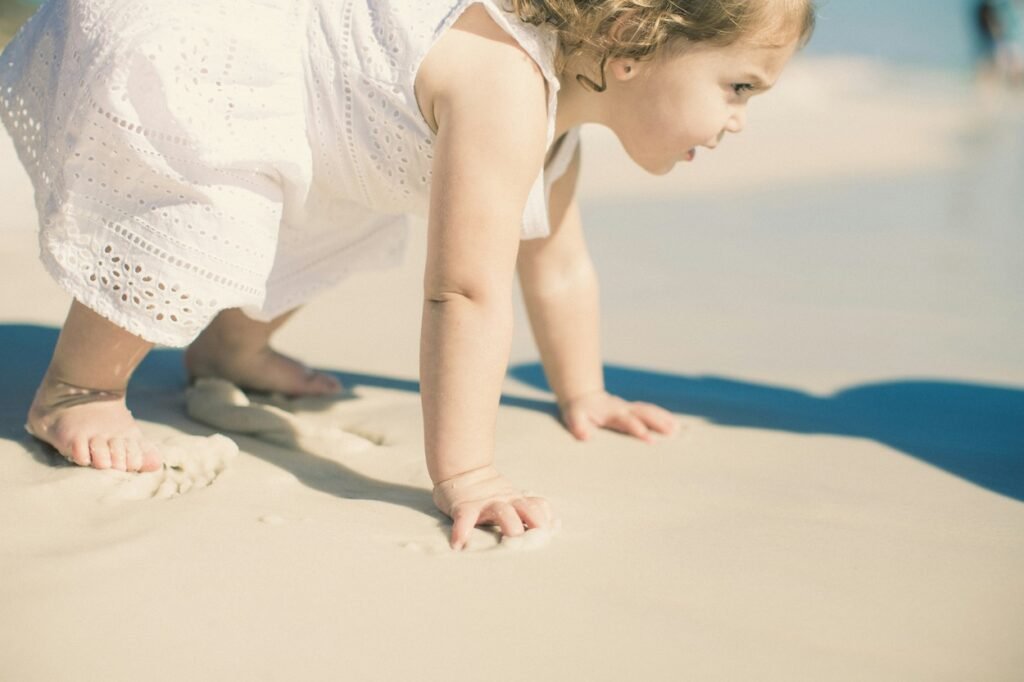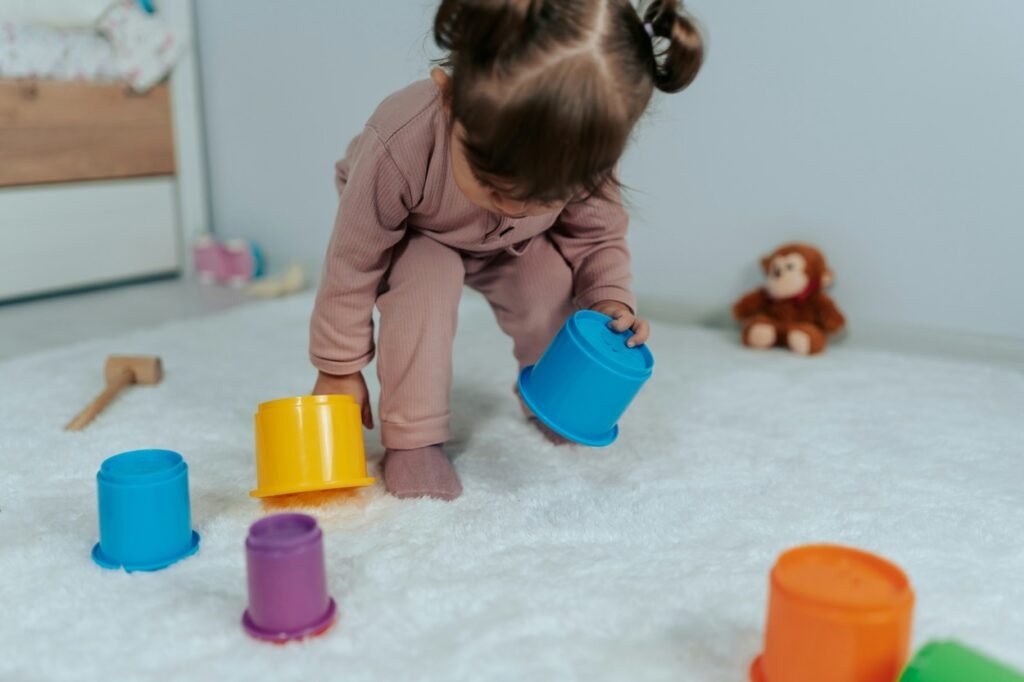Parenthood is a journey full of unexpected twists, turns, and, let’s be honest, a fair amount of mayhem. As a parent, I’ve found myself pondering one question repeatedly: Which toddler age is the hardest? The truth is, each stage has its unique set of challenges, but some ages are particularly memorable (and not always in a good way).
So, let’s dive into the highs, lows, and laugh-out-loud moments of parenting toddlers, and try to pinpoint the most challenging age of all.
The Terrible Twos: Reputation Earned?
Ah, the “Terrible Twos.” The name alone strikes fear into the hearts of new parents everywhere. When my first child approached this age, I thought I was prepared. I’d read the books, I’d seen the movies, and I was convinced that I could handle whatever my two-year-old threw at me. Spoiler alert: I was wrong.
Why the Twos are Tough:
- Independence vs. Ability: Two-year-olds are just beginning to realize that they are separate beings from their parents. This newfound independence is exciting for them—and a bit terrifying for us. They want to do everything themselves, but their motor skills and understanding of the world don’t quite match up. Cue the meltdowns.
- Tantrums Galore: Speaking of meltdowns, the “Terrible Twos” are infamous for a reason. This is the age when toddlers discover the full range of their emotions, and they aren’t shy about expressing them. I can’t count the number of times my child has gone from laughing to screaming in under ten seconds. It’s like living with a tiny, unpredictable volcano.
- Sleep Regression: Just when you think you’ve got bedtime under control, the “Terrible Twos” strike with a vengeance. Suddenly, your toddler decides that sleep is for the weak. You’ll find yourself negotiating like a hostage negotiator just to get them to close their eyes.
Personal Perspective: When my son hit two, I naively believed that we’d cruise through this phase unscathed. But the truth is, there’s no escaping the wrath of a two-year-old who wants to wear a superhero cape to bed and refuses to eat anything that isn’t shaped like a dinosaur. The silver lining? The hilarity of some situations. For example, when my son had a meltdown because his shadow was following him too closely.

The “Threenager” Phase: More Sass, Fewer Naps
If you thought the “Terrible Twos” were bad, welcome to the world of the “Threenager.” This is the age when your toddler develops the attitude of a teenager—complete with eye rolls, sassy comebacks, and the ability to outsmart you at every turn.
Why the Threes are Tricky:
- Vocabulary Explosion: At three, your child’s vocabulary has exploded, which is both a blessing and a curse. They can now tell you exactly what they want (and don’t want), which means arguments over the color of their socks or the direction of the wind are now possible.
- Potty Training Trials: Three is often the age when potty training is in full swing. And let me tell you, nothing tests your patience like a toddler who insists they don’t need to go, only to have an accident five minutes later. It’s a battle of wills, and spoiler: the toddler usually wins.
- Selective Hearing: At this age, your child’s hearing becomes incredibly selective. They can hear the crinkle of a snack wrapper from across the house but will completely ignore your request to pick up their toys. It’s like living with a tiny, stubborn diplomat who’s decided that negotiations are off the table.
Personal Perspective: My daughter embraced her inner “Threenager” with gusto. One of her favorite phrases became, “You know nothing!”—usually heeded by her directly doing the exact opposite of what I had just asked. The independence that started at two blossoms into full-blown defiance at three, and it’s both frustrating and, let’s face it, a little impressive. Sometimes, I’d find myself in awe of her sheer determination to argue about everything. Who knew someone so small could have such big opinions?
The Four-Year-Old Finesse: The Calm After the Storm?
If you’ve survived the “Terrible Twos” and the “Threenager” phase, you might think you’re in the clear when your child turns four. And in many ways, you are. But don’t pop the champagne just yet—there’s still work to be done.
Why Four Can Be Fantastic (But Not Without Challenges):
- Social Skills: Four-year-olds start to develop more complex social skills, which is wonderful… until it’s not. Playdates can quickly turn into battlegrounds over who gets the red crayon, and your once solitary toddler is now navigating the tricky waters of friendships, which can lead to some emotional roller coasters.
- Imaginative Play: At this age, your child’s imagination is in full swing. They might insist on being called “Princess Sparkle” or “Captain Rocket” for days on end. While this is adorable, it also means you’ll need to keep up with an ever-changing array of make-believe scenarios, which can be exhausting.
- The Questions Never Stop: By four, your child has become a curious little sponge, soaking up information and asking questions non-stop. “Why is the sky blue?” “How does the microwave work?” “What are taxes?” (Okay, maybe not that last one, but you get the idea.) While their curiosity is endearing, it can also be mentally draining.
Personal Perspective: When my son turned four, I was relieved to find that the tantrums had subsided, and he was becoming more independent. However, I wasn’t prepared for the onslaught of questions. I found myself Googling everything from “Why do worms come out when it rains?” to “How do airplanes stay in the sky?” It was like living with a tiny, relentless journalist who wouldn’t relax until he had all the explanations.

The Age of Five: The Golden Age or the Final Boss?
Finally, we arrive at age five. Many parents describe this as the “Golden Age” of toddlerhood. Your child is more independent, more articulate, and generally easier to manage. But is it truly the golden age, or is there a final boss waiting to surprise you?
Why Five Might Be the Easiest (But Not Without Its Quirks):
- School Readiness: By five, many children are getting ready to start kindergarten, which means they’re learning to follow instructions, sit still (mostly), and interact with peers in more structured ways. This can make life at home easier, but it also brings new challenges, like school-related anxiety or newfound stubbornness about what they’ll wear on their first day.
- Mini Grown-Ups: Five-year-olds often like to think of themselves as mini grown-ups. They’ll mimic your behavior, try to help out around the house, and even offer (unprompted) opinions on world events. While this is adorable, it can also lead to power struggles when they decide they know best.
- The Last Hurrah: This is often the last year before your child fully enters the world of “big kids.” There’s a bittersweetness to this age, as you realize your baby is growing up and becoming more independent. But with that independence comes a new set of challenges as they test boundaries and assert their individuality.
Personal Perspective: As my daughter is turning five, I am noticing a significant shift. She is more confident, more curious, and (thankfully) less prone to meltdowns. However, she also developed a strong sense of independence that sometimes bordered on stubbornness. One memorable moment was when she insisted on packing her own lunch for school… and ended up with a box full of cookies and nothing else. It was a learning experience for both of us—her learning about nutrition and me learning to double-check her backpack.

Conclusion: The Verdict on the Hardest Toddler Age
So, which toddler age is the hardest? The reality is it’s a bit of a toss-up. Each age brings its own unique set of challenges and joys. The “Terrible Twos” are notorious for a reason, but the “Threenager” phase might just take the cake in terms of sheer defiance. Four offers a bit of a reprieve, but by five, you’re dealing with a mini adult who’s ready to take on the world—whether you’re ready or not.
If I had to pick, I’d say age three was the hardest for me personally. The combination of newfound independence, potty training, and the sudden emergence of a personality that rivals any teenager’s made it a year I won’t soon forget. But no matter the age, there’s one thing I know for sure: Parenting toddlers is an adventure unlike any other. And despite the challenges, it’s a journey filled with love, laughter, and more than a few stories you’ll be telling for years to come.
